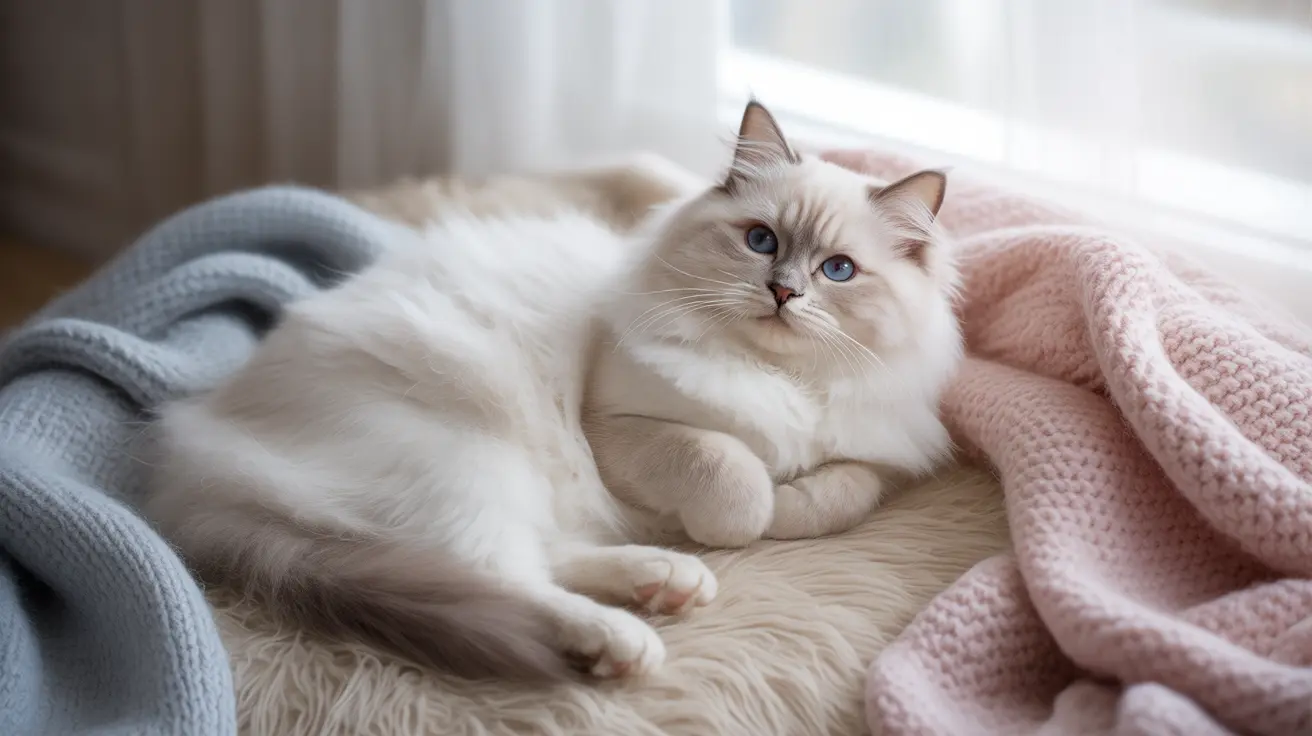Have you ever wondered why your cat is so affectionate? While cats are often portrayed as independent creatures, many feline companions shower their humans with endless love and cuddles. This comprehensive guide explores the fascinating reasons behind your cat's affectionate behavior and what it means for your special bond.
From genetics and early socialization to environmental factors and breed characteristics, multiple elements influence your cat's cuddly nature. Understanding these factors can help you better appreciate and nurture your relationship with your furry friend.
The Science Behind Feline Affection
Cat affection isn't just about warm fuzzy feelings – there's actual science behind it. When cats cuddle with their humans, both parties experience a release of oxytocin, often called the "love hormone." This chemical reaction strengthens the bond between cats and their owners, creating a positive feedback loop that encourages more affectionate behavior.
Additionally, cats use physical contact as a way to mark their territory using scent glands located on their heads and faces. When your cat rubs against you or head-butts you, they're not just showing affection – they're also claiming you as their own.
Genetic and Early Life Influences
A cat's tendency toward affectionate behavior often starts with genetics. Studies have shown that kittens with friendly fathers are more likely to develop outgoing, affectionate personalities. However, genetics is just part of the equation.
The critical socialization period between 2-7 weeks of age plays a crucial role in determining how affectionate a cat will become. Kittens who receive positive human interaction during this time are more likely to seek out human companionship throughout their lives.
Environmental Factors Affecting Cat Affection
Your cat's environment significantly impacts their affectionate behavior. Cats feel most comfortable showing love when they feel safe and secure in their surroundings. This includes having reliable access to:
- Fresh food and water
- Clean litter boxes
- Comfortable resting areas
- Safe hiding spots
- Regular playtime and enrichment
When these needs are met, cats are more likely to express their affectionate nature freely.
Signs of Feline Affection
Cats demonstrate their love in various ways, some more subtle than others. Common displays of feline affection include:
- Slow blinking (cat kisses)
- Purring and kneading
- Following you from room to room
- Sleeping on or near you
- Grooming you
- Bringing you "gifts"
When to Monitor Changes in Affection
While having an affectionate cat is wonderful, sudden changes in behavior should be noted. An usually independent cat becoming overly clingy might be signaling:
- Health issues requiring veterinary attention
- Anxiety or stress from environmental changes
- Age-related needs, especially in senior cats
- Temperature changes (seeking warmth)
- Pregnancy (in unspayed females)
Frequently Asked Questions
Why is my cat so affectionate and cuddly compared to other cats?
Your cat's affectionate nature is likely a combination of genetics, early socialization, and a positive environment. Cats who received plenty of human interaction during their critical development period and live in a secure, loving home are more likely to display cuddly behavior.
How does a cat's early socialization influence their affectionate behavior?
The first 2-7 weeks of a kitten's life are crucial for social development. Positive human interactions during this period significantly increase the likelihood of developing an affectionate personality. Kittens who miss this socialization window may be more reserved with humans.
What are the common signs that my cat is showing love and trust?
Cats show love through slow blinking, purring, rubbing against you, following you around, and sleeping near or on you. Exposing their belly and grooming you are also significant signs of trust and affection.
Why might my cat suddenly become more clingy or affectionate?
Sudden increases in affectionate behavior could indicate various things, including illness, anxiety, temperature changes, or aging. If the change is dramatic or accompanied by other behavioral changes, consult your veterinarian.
Are certain cat breeds naturally more affectionate and why?
Yes, some breeds like Ragdolls, Siamese, and Maine Coons are typically more affectionate due to selective breeding for friendly personalities. However, any cat, regardless of breed, can be affectionate with proper socialization and care.
Nurturing Your Bond
Remember that every cat is unique, and their display of affection will vary. The key to maintaining a loving relationship with your feline friend is respecting their individual personality while providing consistent care, attention, and understanding. By recognizing and appreciating your cat's way of showing love, you can continue to strengthen your special bond.






